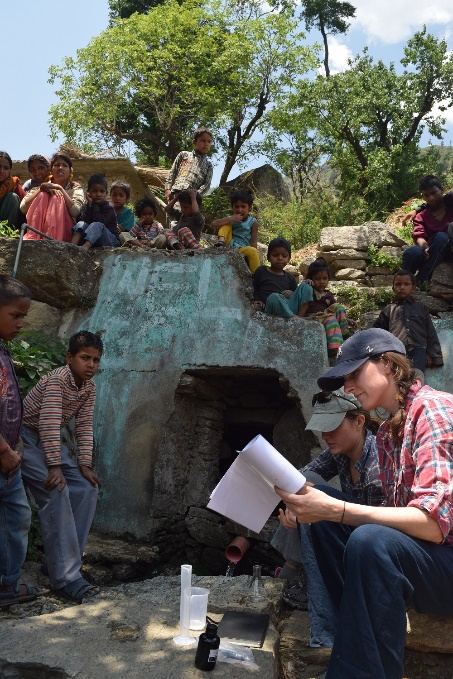
village, Uttarakhand, India. (Photo credit: Arica Crootof)
The Carson Scholars Program (named after Rachel Carson, the pioneering conservationist and environmental writer) at the University of Arizona seeks to bring together interdisciplinary scholars who share an interest in the environment, social justice, and renewable energy.
The program has thus far established a network of 53 scholars who are motivated to develop interdisciplinary research solutions to complex environmental problems. It specifically hopes to build skills to communicate science to broad audiences. Student fellows work with faculty mentors and communication professionals in tailored training opportunities designed to hone participants’ ability to explain research goals and results to a diverse audience.
Tamee Albrecht – a PhD student at University of Arizona – will receive a financial award of $5,000 to support her graduate research. She will also engage in trainings and activities throughout 2017 to build skills and develop science communication products specific to her research.
Tamee’s proposed doctoral research investigates the impact of changes in water availability on communities in the Himalayan foothills in South Asia. Groundwater springs are a primary source of domestic and irrigation water supply for rural Himalayan villages, however groundwater spring flows throughout the region have decreased dramatically over the past decade. While some communities have implemented innovative springs restoration projects to support and revive groundwater resources, others experience significant impacts to water supply, crop production, and livelihoods. Tamee’s study aims to examine how a scientific understanding of groundwater contributes to whether some communities adapt to changing flows while others do not. Because groundwater flows underground, out of sight, it is a difficult resource to conceptualize and understand.
As part of the Carson Scholars program, Tamee plans to develop communication products that contribute to a better understanding of the science of groundwater flow and springs restoration. These products will be in forms that should be accessible to both decision-makers and villagers. Through this project and parallel ongoing pursuits, she hopes to advance the role of scientific information in developing effective groundwater policy.
